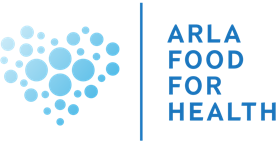Arla Food For Health Newsletter – August 2019
Publish date: 01. August 2019
Arla Food for Health Call 2019
27 research groups used the optional consultancy as part of the Arla Food for Health call process and submitted a one-page research proposal. All groups received feedback from the Arla Food for Health Steering Committee on whether the research proposal was inside call, suggestions for improvements and ideas for collaborations.
Remember the submission of the one-page research proposal is not a requirement for submission of the final application in October.
Arla Food for Health Conference
Thank you to all the Principle Investigators and daily project leaders of the Arla Food for Health project for giving really good presentations of your projects at the yearly Arla Food for Health conference in May. That was the core of the day and a large part of the success of the Arla Food for Health conference.
We would really like to keep the poster session as part of the conference, therefore I hope that even more young scientists will submit posters and help us inspire discussions and facilitate collaboration across departments and universities.
Continuation of Arla Food for Health
The agreement for public-private partnership Arla Food for Health was made for a period of 5 years. 2019 is the last year under the initial agreement. The discussions of continuation of Arla Food for Health has started and a sponsor meeting was held on July 1st (postponed from April).
All sponsors were positive towards continuation of Arla Food for Health. Next steps are to the update the Arla Food for Health agreement including all inputs from partners. A new sponsor meeting is scheduled in October. The aim is to agree on and sign a new contract before end of 2019.
Innovation capability
In 2017, Arla Food for Health was assessed on Innovation capability including evaluation of Strategy & Intent, Processes & Practices, Culture & People, Organization & Infrastructure and Partnership & Open innovation by the Innovation Board, an external consultant. Arla Food for Health scored really well in 2017 (a score 4 out of a max of 5) and in the top 8 % of 242 organizations assessed using this tool.
The same assessment was done by the Innovation Board in spring and we managed to improved our score compared to last assessment, which is a big achievement and something we should be proud of.
News from projects
MAGMAM now MAGNUS: “Milk and Growth in Moderate Acute Malnutrition (MAGMAM)” changed the title of the project to “Milk affecting growth, cognition and the gut in child stunting (MAGNUS)” due to change in test population from children with moderate acute malnutrition to stunted children.
MAINHEALTH: In the start-up phase MAINHEALTH has focused on sorting out legal documents for the clinical trial and for the project. This was finalized and recruitment of study participants has started. In this first year, samples will be collected from recruited participants and their infants. 20 participants was recruited in the last few weeks, so recruitment and initial samplings are going as planned. The recruitment is anticipated to be finalized in October. Further biological samples and data are collected from late summer and onwards.
OmniSaM: The project focuses on developing a metric to measure the satiating capacity of foods and drinks that has higher predictive value of energy consumption than current satiety measures. The metric is multimodal and targets the full spectrum of processes underlying the satiety cascade composing brain, blood and behavior. The project has been running for 2.5 years with funding from Arla Food for Health, and has now entered its final phase before completion in the end of 2019. Data collection from the modalities brain, blood and behavior is completed. Ahead is to continue to combine and analyse data from the big multi-modal study to reveal the detailed nature of the predictive value of the metric and the translatability of satiety signals between the different modalities. Moreover, the project has received great attention in the scientific community and has been presented at sensory-, food- and nutrition oriented conferences and symposiums, meetings with sensory-, neuro- and health professionals, and in the public media.
DAIRYMAT: The objective is to obtain an understanding of how the lipid uptake is affected by modifications of the dairy structure and texture in iso-energetic meals, where macronutrients are kept the same. The experimental work has been finalized for WP1 in vitro digestion, and the writing of publication is in process. All participants have finished the meal study of WP2 and analysis of several parameters in blood samples is ongoing, and especially the end-point ApoB48 is a time-consuming analysis. A PhD-student has been assigned to WP3 on lipidomics, and the quantification of phospholipids in blood samples has begun.
Preliminary results from WP2 have been presented at the 37th International Symposium on Diabetes and Nutrition, June 2019, and results from WP1 will be presented at the 16th International Milk Genomics Consortium Symposium, November 2019.
